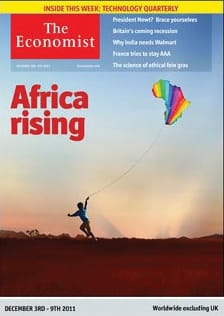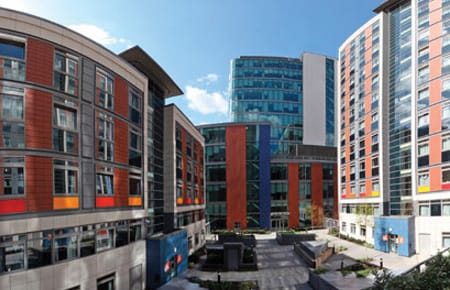The end of aid?
Isaac Obisanya on the Future of Healthcare Development Conference
In October 2012 the Secretary of State for International Development, Justine Greeing, announced cuts to the UK’s £1bn aid programme in India with a view of focussing on a more ‘trade-based’ relationship. More recently during David Cameron’s skadoodle to India in the middle of February 2013, he praised India’s business acumen and strong economic growth in recent years and paraded about the UK’s commitment to ease trade and travel regulations between itself and India which could be seen as a consummation of the UK’s stance to development with India. Across the pond, the Sullivan Foundation, a high level international development organisation with political backing from former President George Bush that drew attention and finances from the halls of US power, recently closed its doors and now holds a private Africa-focussed firm. Western companies and investors like these are falling over backwards to engage in the economic boom that is slowly underway in many countries around the world that were more commonly knows as “third-world”.

Famously, the Economist in 2011 produced a brightly designed cover page entitled “Africa Rising” that many contrasted with their June 2001 cover-page story of Africa branding it “The Dark Continent”. From Vietnam to the Myanmar (where multinationals are moving their manufacturing processes to, away from an ageing and ever more expensive China); from Rwanda to Kenya, where for more than a decade year-on-year GDP growth is in the +10 per cent per annum bracket and is mostly non-commodity driven, economies that used to be the underdogs are now beginning to flex their economic muscle. These countries are drawing international liquidity away from the West that is still licking its wounds from the global financial crisis and contracting or stagnating national budgets (in real terms) across all sectors; and most interestingly for me as a future healthcare professional, the NHS has not escaped the scalpel of the government as it looks for slack to cut.
In the face of all these global changes and a growing optimism, countries like Mozambique for example, which has grown steadily at rates of 68 per cent between 1996 and 2008, still face more than a half of their populations living under the poverty line of $0.50 a day. The Democratic Republic of Congo is still in the middle of civil conflict, and the recent unrest in Mali has done nothing to improve living standards for its people. There is also a growing scepticism that the positive economic growth of recent years has done nothing but increase inequality as Nigerian millionaires party with Kim Kardashian in Lagos and the Chinese elite drive some of the most expensive cars in the world in Beijing while community health workers administering polio vaccines are slain in Northern Nigeria and the future of China’s rural populace is still in question. With all this in mind, what will the future hold for international development aid, which has been both greatly praised and at the same time accused of holding developing countries back. The panel debate at the Future of Healthcare Development Conference on the 6th of March in the Imperial College Business School aims to explore this. In attendance will be the Ambassador of Eritrea to the UK among experts in the field of international development from a variety of sectors. It promises to be a fantastic event! For tickets, please see the Imperial College Union Website.








